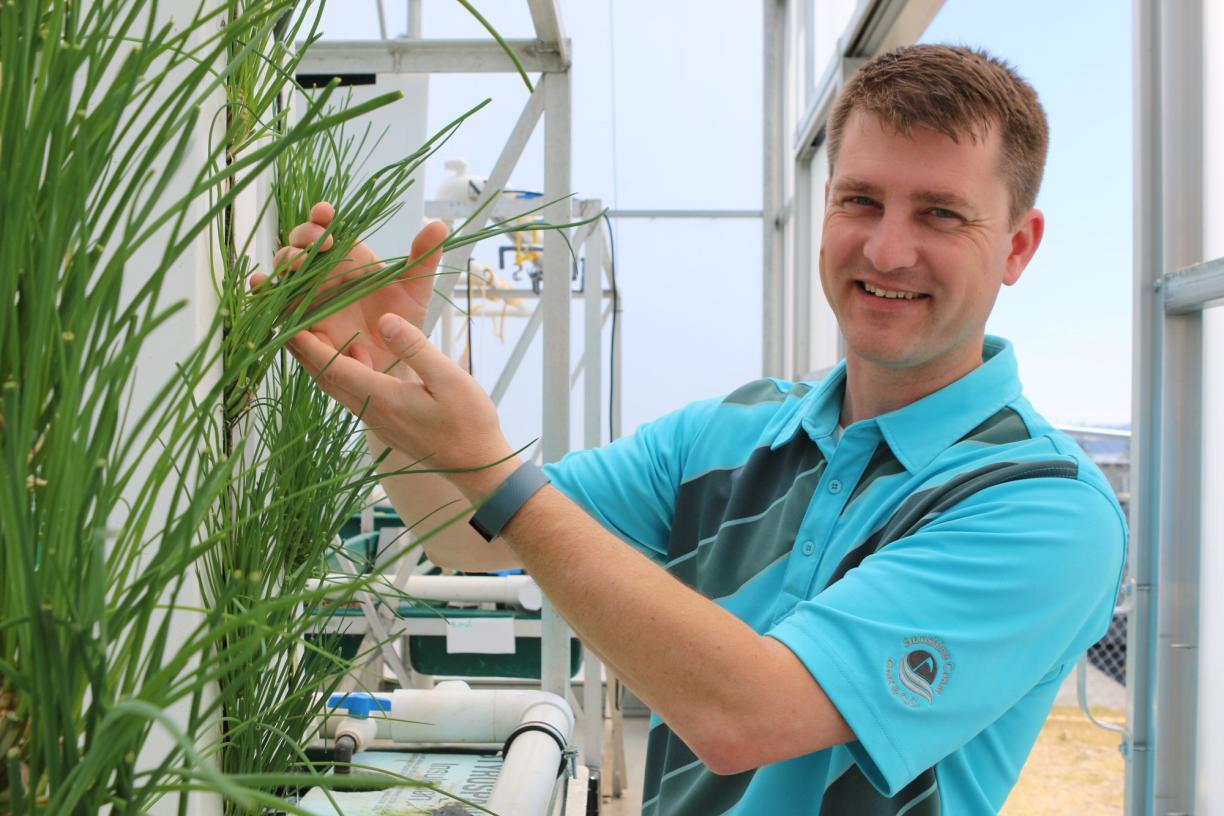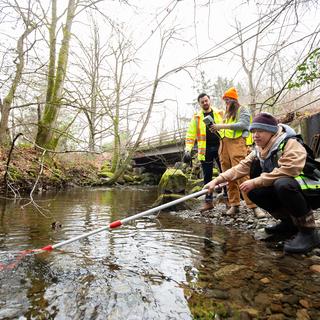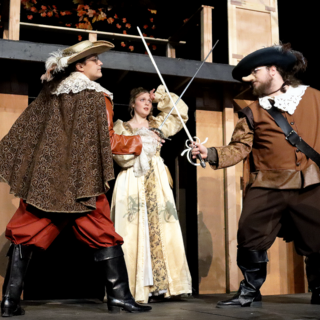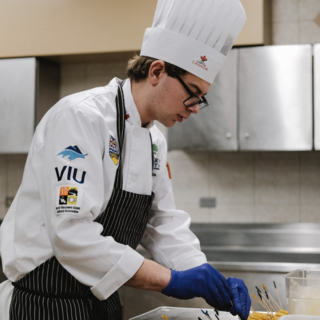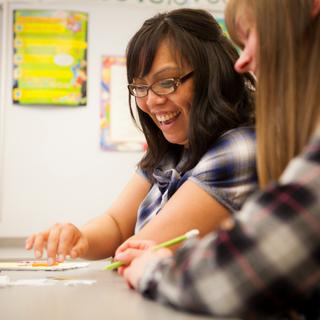VIU Fisheries and Aquaculture students learning in the aquaponics greenhouse gain knowledge about economic, environmental and socially sustainable food production.
A state-of-the-art greenhouse at Vancouver Island University (VIU) is giving students hands-on experiences while they learn about the environmentally sustainable method of growing food through aquaponics.
Aquaponics is a local, organic way to grow food. It combines aquaculture, the cultivation or rearing of fish or aquatic animals for consumption, and hydroponics, water-based plant production.
“Aquaponics is a really good opportunity for Vancouver Island to grow its own food and support its own population in the future. One of the real advantages of aquaponics is that it can be used for urban growing, so you can build a greenhouse and have a regulated system of water anywhere, on top of a building, in a parking lot, basically anywhere that gets sunlight,” says Dr. Dan Baker, a VIU Fisheries and Aquaculture Professor. “That means that food can be grown in the place where it’s being eaten, so it avoids transportation costs and it also means it is being produced locally and that’s really attractive to people in big cities.”
This is one of the reasons Holli Desrocher, a first year VIU Fisheries and Aquaculture Technology Program student, was interested in learning about aquaponics.
“We’re running out of arable land right now so this is an alternative we can use,” says Desrocher. “I wanted to learn more about it to be self-sufficient. When I get older and have kids I want to be able to grow my own vegetables to feed my family.”
Desrocher says modern agriculture needs large amounts of water. According to Agriculture and Agri-Food Canada the “agriculture sector is by far the biggest user of freshwater” and runoff of “pesticides, fertilizers, manure or nitrogen can get into the groundwater and eventually make it way into lakes, rivers or the ocean.” This runoff can cause issues in habitats such as increasing algae growth, which can block light to the bottom of these waterways, and other issues.
Chloe McLaughlin, a student in VIU’s Fisheries and Aquaculture Diploma Program says during her first semester working in the aquaponics greenhouse she learned a lot about water quality because they test the water regularly for nitrates, ammonia and pH levels to ensure there are enough nutrients for the plants and the water is habitable for the fish.
The greenhouse is designed to take advantage of eco-mimicry, an eco-friendly technology that is designed to mimic the natural world, so it works similarly to what you would see in wild ponds, rivers and streams, says Baker.
VIU’s aquaculture greenhouse is unique because most operations use warm water fish such as tilapia, but instead sturgeon, a cool water fish, is used in the VIU greenhouse. The fish are fed, digest the food, and then excrete a byproduct called ammonia which is digested by the micro-organisms in the system. The micro-organisms excrete nitrates, which helps the plants grow.
Baker says the skills students learn in the aquaponics greenhouse are extremely important to their success once they go out into the industry. This experiential, hands-on training will still be offered in a safe and responsible way this year, but will be taught by longtime departmental member and previous aquaponics instructor, Mark Noyon while Baker is on sabbatical.
The department is implementing numerous safety measures, some of which include pre-screening students for symptoms, providing hand sanitizer on-site, requiring social distancing during classes, dividing students into groups that alternate weeks for in-person training, cleaning equipment between each use, and requiring personal protective equipment which includes gloves, safety glasses and non-medical or homemade face coverings.
“It’s really important that the students interact with the systems here, not many institutions have that capacity, but here at VIU we are focused on experiential learning so that students have the skills to try this at home or to start a small business so they are going into the industry and supporting its growth,” says Baker.
VIU students learning in the greenhouse gain knowledge about economic, environmental and social sustainability by understanding crop diversification and improved farm economics, decreasing the ecological footprint of food production and how to operate an integrated food production system.
Produce grown in the facility by the students has been used in the VIU Culinary Arts Program, which allows chefs to learn about aquaculture and aquaponics food production. It also has been given to local companies such as Pomme Natural Market as pilot projects to determine local demand.
-30-
MEDIA CONTACT:
Rachel Stern, Communications Officer, Vancouver Island University
C: 250.618.0373 l E: Rachel.Stern@viu.ca | T: @VIUNews

